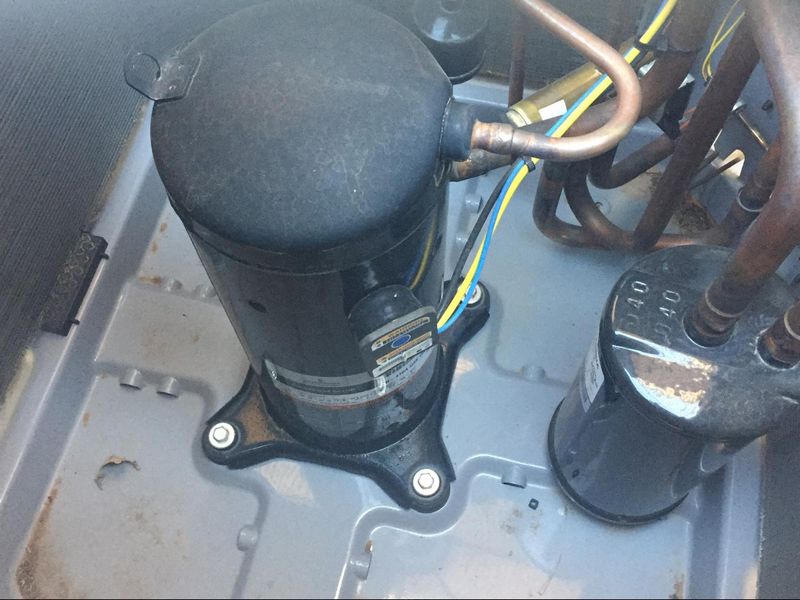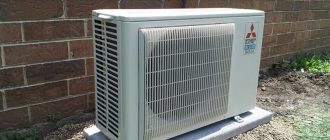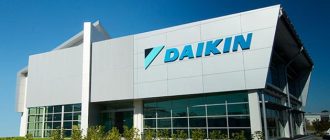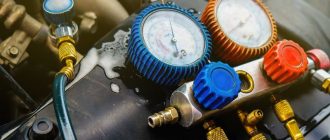
Why are AC compressors so expensive?
AC compressors – we all know they can be expensive. But have you ever wondered why they are so pricey?
When it comes to AC systems, the compressor plays a crucial role. It’s the heart of the cooling process, responsible for pressurizing and circulating the refrigerant. Without it, your AC won’t work efficiently or cool your home effectively.
So, why AC compressors are expensive?
Quality and Reliability: AC compressors are built to withstand demanding conditions, ensuring years of reliable performance. Top manufacturers invest heavily in research and development, using high-quality materials and advanced technology to create compressors that don’t compromise on quality.
Energy Efficiency: Modern AC compressors are designed to be energy-efficient, helping you save on your electricity bills in the long run. While they may be expensive upfront, their efficiency pays off over time with reduced energy consumption and lower operating costs.
These factors contribute to the higher price you pay for AC compressors, but they also ensure that you get a reliable and efficient cooling solution for your home.
Functionality of AC Compressors
AC compressors play a crucial role in the functioning of an air conditioning system. The primary function of these compressors is to compress the refrigerant, which allows it to absorb and release heat efficiently.
So, why are compressors so important? Well, without a properly functioning compressor, an AC system would not be able to cool the air effectively. Compressors are responsible for creating the necessary pressure within the system to convert the refrigerant from a gaseous state to a high-pressure liquid state. This process is essential for the AC system to function optimally.
The compressor pumps the compressed refrigerant through the various components of the AC system, such as the condenser and evaporator coils. As the refrigerant flows through these coils, it absorbs heat from the surrounding air and cools it down. The cooled air is then directed into the living space, providing a comfortable environment, especially during hot summer months.
In addition to cooling the air, compressors also help remove humidity from the indoor environment. When warm air passes through the evaporator coil, the moisture in the air condenses on the coil, allowing it to be drained away. This dehumidification process helps maintain a comfortable indoor humidity level, preventing the air from feeling too sticky or damp.
Understanding the functionality of AC compressors is essential in appreciating their importance in the overall performance of an air conditioning system. A well-maintained, efficient compressor is crucial for effective cooling and dehumidification, ensuring a comfortable indoor environment all year round.
Importance of AC Systems
Why are AC systems so expensive? It’s not just about the cost of the compressor, but also the value they provide. AC systems are an essential part of our modern lives, offering a comfortable and healthy indoor environment.
During hot summer months, AC systems help regulate the temperature, keeping us cool and preventing heat-related illnesses. They also remove humidity, reducing the risk of mold growth and providing relief to those with respiratory conditions.
In addition to providing comfort, AC systems improve our productivity. Studies have shown that people work more efficiently in a comfortable environment, resulting in increased job performance. AC systems also create a noise barrier, reducing distractions and improving concentration.
AC systems play a vital role in maintaining the quality of certain goods and equipment. In hospitals, for example, AC systems help control the temperature and humidity, ensuring medication and equipment remain effective. In data centers, AC systems prevent overheating of servers, protecting valuable data.
Furthermore, AC systems contribute to the resale value of homes and buildings. Having a reliable and efficient AC system is a selling point for potential buyers, attracting higher offers. It also adds to the overall desirability of a property in hot climates.
Considering the importance of AC systems in our daily lives and the numerous benefits they offer, it’s understandable why they come with a higher price tag. Investing in a quality AC system is not just a matter of luxury, but a necessity for a comfortable and healthy living environment.
Factors Affecting the Price
AC compressors are an essential component of air conditioning systems, but they can be quite expensive. So, why are AC compressors so expensive? There are several factors that can contribute to the high price of these components.
| 1. | Brand and Quality: | Well-known brands that have a reputation for producing high-quality AC compressors often come with a higher price tag. These brands invest heavily in research and development and use premium materials to ensure the durability and performance of their compressors. |
| 2. | Capacity: | The capacity of an AC compressor refers to its cooling power, measured in British Thermal Units (BTUs). Compressors with higher capacities are generally more expensive as they can cool larger spaces more efficiently. |
| 3. | Efficiency: | Energy-efficient compressors are in high demand due to their ability to reduce electricity consumption. These compressors often come with advanced features and technologies that contribute to their higher price. |
| 4. | Installation: | The cost of installing an AC compressor can also affect its overall price. If the installation requires additional work or modifications to the existing system, it can add to the overall cost. |
| 5. | Market Demand: | High market demand for AC compressors can drive up their prices. Factors such as seasonal fluctuations, weather conditions, and the overall demand for air conditioning can impact the availability and cost of compressors. |
| 6. | Availability of Parts: | If a particular brand or model of AC compressor has limited availability of replacement parts, it can increase the price as it becomes more challenging to maintain and repair the compressor. |
These are just a few of the factors that can affect the price of AC compressors. When considering a purchase, it’s essential to evaluate these factors and choose a compressor that meets your specific needs and budget.
Quality of Materials Used
One of the main reasons why AC compressors are expensive is because of the quality of materials used in their production. AC compressors are built to withstand extreme conditions and provide reliable cooling for extended periods of time. As a result, manufacturers opt for high-quality materials that can handle the heat, pressure, and other external factors that AC compressors are exposed to.
When it comes to the components of an AC compressor, the materials used play a crucial role in its overall performance and durability. The compressor pump, for example, is often made of high-grade steel that can withstand high operating pressures and resist corrosion. The valves and seals are made of special materials, such as reinforced rubber or metal alloys, to ensure proper functioning under various conditions.
Additionally, the coils and fins used in AC compressors are typically made of materials with excellent heat transfer properties, such as copper or aluminum. These materials allow for efficient heat exchange, which is essential for the overall cooling process. By using high-quality materials, AC compressors can deliver optimal performance and achieve desired cooling outcomes.
Furthermore, the quality of materials used also affects the lifespan of an AC compressor. Inferior materials may deteriorate quickly under harsh conditions, leading to premature compressor failure. On the other hand, choosing materials that are specifically designed for durability and longevity ensures that the AC compressor will have a longer lifespan, reducing the need for frequent replacements and repairs.
While the use of high-quality materials contributes to the higher cost of AC compressors, it is a necessary investment in ensuring the product’s performance, reliability, and lifespan. By opting for AC compressors that are made with the best materials available in the industry, consumers can have peace of mind knowing that they are getting a product that will effectively cool their space and withstand the test of time.
Manufacturing Process
AC compressors are an essential component in air conditioning systems that help regulate the temperature indoors. Due to their complex construction and high-quality materials, AC compressors are expensive. The manufacturing process for these compressors involves several intricate steps to ensure their efficiency and durability.
First, the manufacturing process begins with the design phase, where engineers carefully plan the dimensions and specifications of the AC compressors. This stage is crucial as any errors or miscalculations can result in a faulty product. Once the design is finalized, the production phase begins.
During production, specialized machinery is used to shape and fabricate the different parts of the compressor. High-quality metals, such as aluminum and copper, are often used to ensure optimal performance. The intricate components are carefully assembled by highly skilled technicians using advanced techniques.
After assembly, the compressors undergo rigorous testing to ensure they meet the necessary standards. This includes performance testing to measure their cooling capacity and efficiency. Any compressors that do not meet the requirements are discarded or sent back for further adjustments.
Once the compressors pass the testing phase, they are carefully packaged and prepared for distribution. Proper packaging is essential to protect the compressors during transportation and storage.
So, the high cost of AC compressors can be attributed to the expensive materials used, the complexity of the manufacturing process, and the rigorous testing procedures to ensure their quality and performance. All these factors contribute to the overall value and reliability of AC compressors, making them an essential investment for a comfortable indoor environment.
Research and Development Costs
One of the key reasons why AC compressors are expensive is due to the high research and development costs involved in their production. AC compressor technology is constantly evolving and improving, and manufacturers invest significant resources into research and development to create more efficient and reliable compressors.
Developing new AC compressor designs requires extensive testing and experimentation, which can be both time-consuming and expensive. Manufacturers need to invest in advanced equipment and technology to evaluate the performance and durability of the compressors under various conditions.
Furthermore, the research and development process includes the cost of hiring skilled engineers and technicians who can design and optimize the AC compressors. These individuals need to have a deep understanding of thermodynamics, fluid dynamics, and mechanical engineering principles to develop efficient and reliable compressors.
Another significant factor contributing to the high research and development costs is the need for compliance with strict industry regulations and standards. AC compressors must meet safety and environmental requirements, which involve additional testing and certification processes. These procedures add complexity and cost to the research and development phase.
In summary, the expensive nature of AC compressors is partly because of the high research and development costs incurred by manufacturers. The continuous need for innovation and compliance with industry regulations drives up the expenses involved in creating efficient and reliable AC compressors.
Energy Efficiency Standards
AC compressors, like any other electrical appliance, consume energy to function. However, due to their constant use in cooling and heating environments, they can be a significant source of energy consumption in households and commercial buildings.
Recognizing the need for energy conservation and reducing the environmental impact, energy efficiency standards have been implemented for AC compressors. These standards aim to regulate the energy consumption and performance of AC compressors by setting strict guidelines and requirements.
One of the primary reasons why AC compressors are expensive is due to the compliance with these energy efficiency standards. To meet the standards, manufacturers invest in advanced technologies and engineering designs that increase the overall efficiency of the compressors.
Energy efficiency standards ensure that AC compressors operate at higher SEER (Seasonal Energy Efficiency Ratio) ratings. SEER ratings indicate the cooling output in British thermal units (BTUs) per hour divided by the total electrical energy input in watt-hours during the cooling season. Higher SEER ratings signify greater energy efficiency and lower energy consumption.
By adhering to energy efficiency standards, AC compressors can help reduce electricity bills and contribute to environmental sustainability. Homeowners and business owners can enjoy the benefits of lower energy consumption while also minimizing their carbon footprint.
Furthermore, energy efficiency standards promote innovation in the AC compressor industry by encouraging manufacturers to develop new technologies and designs. These advancements not only improve the overall performance of AC compressors but also lead to the development of more affordable and efficient models in the long run.
As energy efficiency becomes a priority for consumers and governments worldwide, investing in AC compressors that meet or exceed these standards is essential. By choosing energy-efficient AC compressors, individuals can not only save money but also contribute to a greener future.
Market Demand and Supply
AC compressors are expensive, but have you ever wondered why they are so pricey? The answer lies in the market demand and supply dynamics. Understanding this can give us valuable insights into the factors behind their high cost.
First and foremost, the demand for AC compressors is quite high due to the widespread use of air conditioning systems in homes, offices, and various industries. As temperatures rise across the globe, the need for cooling solutions has increased significantly. This high demand puts pressure on the supply chain, resulting in higher prices for AC compressors.
Additionally, air conditioning systems are becoming more advanced and energy-efficient, leading to higher quality and more expensive components, including compressors. Manufacturers invest heavily in research and development to meet the evolving needs of consumers and comply with stringent energy efficiency regulations. These advancements contribute to the overall cost of AC compressors.
Furthermore, the supply of AC compressors is limited, as only a few manufacturers specialize in producing these components. This limited competition allows manufacturers to have greater control over pricing. Moreover, the production process of AC compressors requires specialized machinery and skilled labor, adding to the overall cost of production.
Lastly, the cost of raw materials used in the manufacturing of AC compressors also plays a significant role in their high price. The materials, such as copper, aluminum, and steel, have seen fluctuations in prices due to market conditions and availability. These price fluctuations ultimately impact the cost of AC compressors.
In conclusion, the high cost of AC compressors can be attributed to the market demand and supply dynamics, the advancements in cooling technology, limited competition, and the cost of raw materials. Understanding these factors can help us comprehend why AC compressors are priced the way they are.
Brand Reputation and Image
When it comes to AC compressors, brand reputation and image play a significant role in their high cost. But why are these compressors so expensive?
One of the main reasons is that well-established brands have invested heavily in research and development to create high-quality and reliable AC compressors. These brands have built a reputation for producing durable and efficient products, which adds value to their compressors.
Additionally, reputable brands often have a strong customer base and a loyal following. Customers are willing to pay a premium for AC compressors from these brands because they trust the brand’s reputation and believe in the quality of their products.
Brand image also plays a crucial role in the pricing of AC compressors. Premium brands invest in marketing and advertising to create a perception of luxury and exclusivity. They position themselves as industry leaders and experts, which further justifies the higher price point of their compressors.
Moreover, premium brands often offer superior customer service and warranties. Their reputations for excellent after-sales support make customers feel more confident in their purchase decision, even if it means paying a higher price for their AC compressors.
In conclusion, brand reputation and image are significant factors behind the high cost of AC compressors. Established brands that invest in research and development, have a loyal customer base, and showcase a luxury image can command higher prices for their compressors, creating perceived value for consumers.
Distribution and Transportation Costs
Expensive, so why are compressors priced so high? One of the factors contributing to the high cost of AC compressors is the distribution and transportation costs involved in getting the product from the manufacturer to the customer.
Distribution costs refer to the expenses incurred in moving the compressors from the factory or warehouse to various distribution points. These costs include packaging, handling, and storage fees. Additionally, distributors often add a markup to cover their own operating expenses and profit margins. All these costs contribute to the final price of the compressors.
Transportation costs play a crucial role in determining the price of AC compressors. Shipping goods from the manufacturer’s location to distribution centers or directly to customers involves expenses such as fuel, labor, insurance, and other associated costs. International shipping may incur additional fees like customs duties and taxes.
Furthermore, the size and weight of AC compressors can affect transportation costs. Larger and heavier compressors require special handling and transportation arrangements, leading to higher costs. Fragile compressors may also necessitate additional protective packaging, further increasing the shipping expenses.
In some cases, compressors may need to be shipped long distances or even internationally, adding to the overall distribution and transportation costs. These costs are eventually passed on to the customers, resulting in higher prices for AC compressors.
It is important for customers to understand the impact of distribution and transportation costs on the price of AC compressors. While these costs may contribute to the high price, they are essential for ensuring a reliable and efficient supply chain, ultimately delivering the compressors to the end-users.
- Factors contributing to the high cost of AC compressors:
- – Distribution costs, including packaging, handling, and storage fees
- – Distributors’ markups to cover operating expenses and profit margins
- – Transportation costs, such as fuel, labor, insurance, and associated expenses
- – Additional fees for international shipping, customs duties, and taxes
- – Special handling and packaging for larger or fragile compressors
- – Long-distance or international shipping expenses
Taxes and Import Duties
Compressors are not only expensive due to their advanced technology and high quality materials, but also because of the taxes and import duties imposed on them. Importing AC compressors from abroad involves additional costs that contribute to their high price.
Taxes and import duties are charges imposed by governments on imported goods. They are designed to protect domestic industries and regulate international trade. When AC compressors are imported, they often attract these charges, increasing their overall cost.
The amount of taxes and import duties incurred depends on several factors, including the country of origin, the value of the compressors, and the specific tax regulations in the importing country. Different countries have different tax rates and import duty structures, which can significantly affect the final price of AC compressors on the market.
In addition to the base price of the compressors, importers must pay taxes and import duties, which can range from a few percent to significantly higher percentages of the total value. These charges are determined by customs authorities and are usually collected at the point of entry into the importing country.
| China | 10% | 5% |
| South Korea | 8% | 3% |
| Germany | 12% | 7% |
As seen in the table above, different countries have different tax rates and import duties for AC compressors. These additional costs are then passed on to the consumers, making the compressors even more expensive.
It’s important for consumers to be aware of these taxes and import duties when purchasing AC compressors. Understanding the factors that contribute to their high cost can help buyers make informed decisions and choose the right product within their budget.
Warranty and Customer Service
When it comes to AC compressors, warranty and customer service play a crucial role in their overall value. Many AC compressors come with a manufacturer’s warranty that offers protection against defects and malfunctions. This warranty ensures that if the compressor fails within a specified period, the manufacturer will repair or replace it at no additional cost to the customer.
An extensive warranty not only provides peace of mind but also demonstrates the manufacturer’s confidence in their product. AC compressors are complex devices, and any mechanical failure can be costly to repair or replace. A long-term warranty helps safeguard customers against unexpected expenses, as they can rely on the manufacturer’s support if something goes wrong.
In addition to the warranty, customer service is another significant factor that influences the price of AC compressors. AC compressors are intricate pieces of machinery, and proper installation, maintenance, and troubleshooting might require expert knowledge and guidance. Manufacturers that invest in excellent customer service staff and resources are more likely to provide timely assistance to their customers, ensuring a smooth and hassle-free experience.
Moreover, comprehensive customer service can also include technical support, online resources such as user manuals and troubleshooting guides, and easy access to replacement parts. These additional services contribute to the overall value of the AC compressor, making it more expensive compared to models from manufacturers that do not prioritize customer service.
So, why are AC compressors so expensive? Warranty and customer service are two significant factors that add value to the product. By providing a reliable warranty and excellent customer service, manufacturers ensure that their customers receive the necessary support and protection, even in the event of a malfunction or breakdown. This commitment to customer satisfaction contributes to the higher cost of AC compressors but ultimately provides peace of mind and a better overall experience for the consumer.
Installation and Maintenance Expenses
Compressors are undoubtedly an essential component of an air conditioning system. However, their high price is not limited to the purchase cost alone. Installation and maintenance expenses also contribute to the overall price tag. Let’s explore why these expenses are so significant:
- Professional Installation: Due to the complex nature of AC compressors, it is recommended to have them installed by a professional technician. This ensures proper installation and minimizes the risk of damage or malfunction. However, professional installation services come at a cost, which adds to the overall expenses.
- Specialized Tools and Equipment: Installing and maintaining AC compressors often requires specialized tools and equipment, such as refrigeration gauges, vacuum pumps, and torque wrenches. These tools can be quite expensive, and their cost is factored into the overall expenses.
- Regular Maintenance: AC compressors require regular maintenance to ensure optimal performance and longevity. This includes tasks like cleaning, lubricating, and inspecting various components. Hiring a professional for routine maintenance adds to the expenses, but it also helps to prevent costly repairs or replacements in the long run.
- Replacement Parts: Over time, certain parts of AC compressors may wear out or fail, necessitating replacement. The cost of these replacement parts can be significant, especially for high-quality and branded compressors. Additionally, the labor involved in replacing these parts adds to the expenses.
- Energy Consumption: AC compressors consume a significant amount of electricity. The energy consumption translates into higher utility bills, which can contribute to the overall expenses over the lifetime of the compressor.
Considering all these factors, it becomes clear why installation and maintenance expenses contribute to the high cost of AC compressors. However, it is important to remember that these expenses are necessary investments to ensure the efficient functioning and longevity of the compressor, ultimately providing comfort and convenience in any living or working space.
Life Expectancy of AC Compressors
AC compressors are an important component of any air conditioning system. They play a crucial role in cooling the air and maintaining the desired temperature in your home or office. However, their importance comes at a price. AC compressors are expensive and the cost is often a major concern for individuals looking to replace or repair their air conditioning units. Understanding the factors that contribute to the high cost of AC compressors can help shed some light on why they are so expensive.
One of the factors that impact the price of AC compressors is their life expectancy. The life expectancy of AC compressors is typically between 10 to 15 years, depending on various factors such as the quality of the unit, usage, maintenance, and environmental conditions. While this might seem like a long time, it is important to consider that AC compressors are constantly running and undergo a significant amount of wear and tear, which can shorten their lifespan.
Another factor that affects the life expectancy of AC compressors is the quality of the unit. Higher quality compressors are often built to last longer and can withstand harsher conditions. They are typically more expensive upfront, but their longer lifespan can result in cost savings in the long run. On the other hand, lower quality compressors may have a shorter lifespan and may require more frequent repairs or replacements.
Proper maintenance and regular servicing can also play a crucial role in extending the life expectancy of AC compressors. Regular cleaning, lubrication, and inspection can help identify and address any potential issues before they become major problems. Neglecting maintenance can lead to increased wear and tear, which can significantly shorten the lifespan of the compressor.
Environmental conditions can also impact the lifespan of AC compressors. Extreme temperatures, high humidity, and exposure to harsh weather conditions can put additional strain on the unit, leading to premature failure. Installing the compressor in a well-ventilated area and providing proper insulation can help mitigate these factors and extend the lifespan of the unit.
In conclusion, the life expectancy of AC compressors is influenced by factors such as the quality of the unit, usage, maintenance, and environmental conditions. While AC compressors are expensive, understanding these factors can help you make an informed decision when it comes to repairing or replacing your air conditioning unit.
Q&A:
What are the factors that contribute to the high cost of AC compressors?
There are several factors that contribute to the high cost of AC compressors. One factor is the materials used in their construction, such as high-quality metals and alloys. Another factor is the complex design and engineering required to create a compressor that can efficiently and effectively cool a space. Additionally, the demand for AC compressors plays a role in their price, as there is often a high demand for these products, especially during the summer months.
Are there any alternatives to expensive AC compressors?
While there may be alternative cooling systems available, such as fans or window units, these may not offer the same level of cooling power as an AC compressor. Additionally, there are portable AC units that can be more affordable than central AC compressors, but they may not be as energy efficient or effective at cooling larger spaces. It is important to consider the specific needs of your space and budget when considering alternatives to expensive AC compressors.
Can the high cost of AC compressors be justified?
The high cost of AC compressors can be justified when considering the long-term benefits and functionality they provide. AC compressors are essential for cooling and maintaining a comfortable indoor environment, especially in hot climates. While the initial cost may be expensive, the durability and reliability of a high-quality compressor can result in cost savings over time. Additionally, investing in a high-quality AC compressor can provide better energy efficiency, reducing energy bills in the long run.
What are some ways to save money on AC compressors?
There are a few ways to save money on AC compressors. One option is to shop around and compare prices from different manufacturers or retailers. It may also be worth considering buying a slightly older model or a refurbished compressor, as these can sometimes be less expensive than brand new models. Additionally, regular maintenance and care of your AC compressor can prolong its lifespan and prevent the need for costly repairs or replacements in the future.




